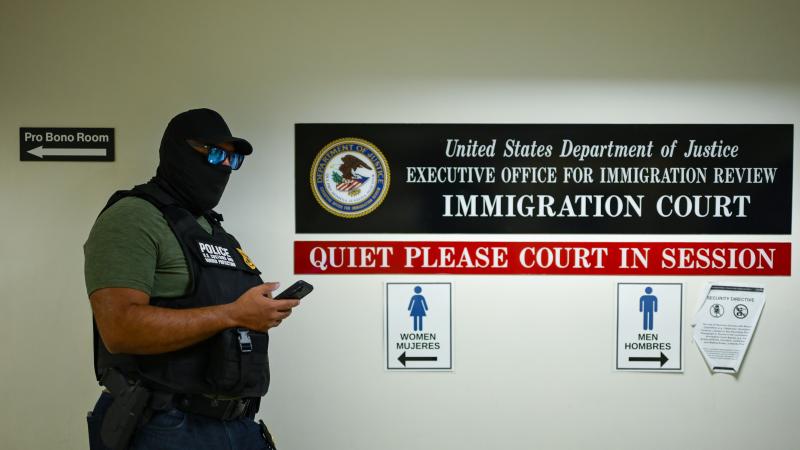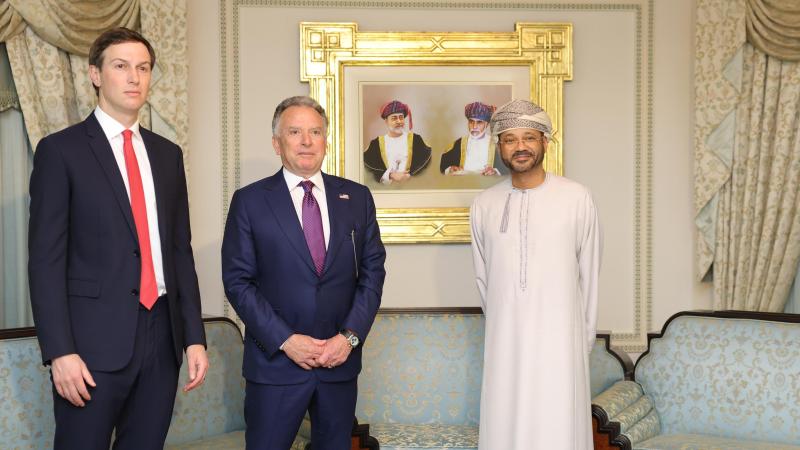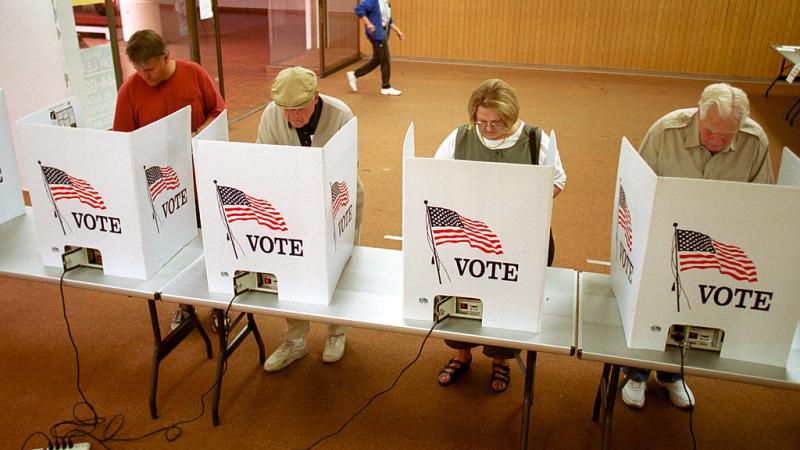Trump’s next battlefields: a NATO-snubbing Spain and a conflicted U.S. intel community
Trump’s NATO victory could be undermined by two boiling pots: his own intel team’s differing takes on Iran strike’s success and a tightly fisted Spain that refuses to pony up its share of NATO costs.
At the yearly North Atlantic Treaty Organization (NATO) summit in The Hague, Netherlands, President Donald Trump arrived victorious. The alliance of nations reached an agreement, at Trump's urging, for all members to increase their defense spending to five percent of their gross domestic product (GDP) except for Spain.
Despite the outlier, the victory is a "historic achievement" for Trump, says former Deputy National Security Advisor Victoria Coates. Coates also told Just The News that, "This has been the situation that's been festering since the early 70s. My old boss, Donald Rumsfeld, was ambassador to NATO in 1974, and he was writing to then-Secretary Kissinger, saying, 'we are creating this dangerous, dangerous culture of dependence, and the Europeans aren't doing enough, and they need to do more.' And that was allowed over the subsequent 50 years to just go on, and the only person who made a stink about it was President Trump."
From 2% to 5% of GDP
Prior to the heightened target, most NATO members contributed just over 2% of their GDP on defense spending. The new target, which was proposed by NATO Secretary-General Mark Rutte, allows flexibility to reach 5% by way of 3.5% allocated specifically for conventional defense capabilities and an additional 1.5% directed towards broader security-related investments, including domestic infrastructure and cybersecurity.
Spain secured an exemption from the 5% spending target primarily due to what they claim are domestic political and economic constraints. Spain's Prime Minister, Pedro Sánchez, argued in a letter to NATO Secretary-General Mark Rutte that committing to 5% would be "unreasonable and counterproductive," as it would undermine Spain’s welfare state and social spending priorities, such as pensions and green initiatives.
Spain’s defense spending in 2024 was the lowest of all NATO members, only 1.28% of GDP. Sánchez maintained that 2.1% was sufficient to meet NATO’s updated capability targets for troops and equipment without necessitating drastic fiscal adjustments. Sánchez also argued that Spain’s geographic distance to Russia reduces its immediate security threat, and meeting the 5% target could hinder EU efforts to develop its own defense ecosystem.
Trump: No free ride
Speaking at a press conference at the summit, President Donald Trump told the press that Spain's refusal to meet the 5% target was "terrible" because Spain's economy "is doing very well. And that economy could be blown right out of the water with something bad happening."
"We're negotiating with Spain on a trade deal, and we're going to make them pay twice as much. I like Spain. It's a great place and they are great people, but Spain is the only country out of all the countries that refuses to pay. So they want a little bit of a free ride, but they will have to pay it back to us on trade because I'm not going to let that happen. It's unfair," he continued.
Another battlefront facing Trump is within his own intelligence community. The recent strikes on Iran's nuclear sites have apparently produced conflicting intelligence on how much damage the fourteen GBU-57A/B MOP 30,000-pound "bunker buster" bombs inflicted.
In the hours following the strike, Trump gave an address to the nation in which he characterized the strikes as "a spectacular military success" and that Iran's three nuclear enrichment facilities were "completely and totally obliterated." On Monday, Trump again said that the damage to the sites was "monumental."
Leaks, disinformation and damage
An intelligence report leaked Tuesday claims the strikes did not completely destroy Iran's nuclear program but likely set it back by only a few months. The classified report was produced by the Defense Intelligence Agency (DIA) and is reportedly based on a battle damage assessment conducted by US Central Command (CENTCOM) in the aftermath of the strikes.
Also conflicting with the leak is the admission by Esmail Baghaei, spokesman for the Iranian Foreign Ministry, who told Al Jazeera that Iran's nuclear installations "have been badly damaged, that's for sure."
As of Wednesday, the Trump administration reportedly will begin limiting classified information it shares with Congress, suggesting the leak may have come from Capitol Hill.
Further conflicts in messaging came to the surface because, prior to the U.S. strike on Iran, Trump's Director of National Intelligence (DNI) Tulsi Gabbard told Congress in March that "the IC continues to assess that Iran is not building a nuclear weapon and Supreme leader Khomeini [sic] has not authorized the nuclear weapons program that he suspended in 2003."
Since then, Trump said Gabbard "is wrong" and Gabbard said she and Trump "are on the same page."
Perhaps the most damning indictment of the intel assessment is the source of the leak, which calls into question its veracity.
Coates, widely considered a genuine expert on security issues, told Just The News, "The way this early Defense Intelligence Agency assessment was leaked is the same way the Steele Dossier was leaked and the same way the "Hunter Biden's laptop is Russian disinformation" was leaked."
Coates pointed out that "the same reporter, Natasha Bertrand, is the person who received those two leaks and then received this one." It is now widely accepted that both the Steele Dossier and the notion that Hunter Biden's laptop was Russian disinformation, were both proved to be false.
The Facts Inside Our Reporter's Notebook
- most NATO members
- argued in a letter
- lowest of all NATO
- Speaking at a press
- gave an address
- was "monumental."
- who told Al Jazeera
- reportedly will begin
- told Congress in March
- Gabbard "is wrong"
- on the same page."














